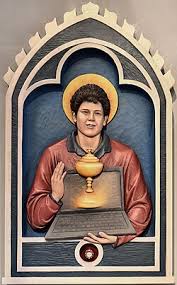Carlo Acutis: The Digital Age’s First Saint Makes History at Vatican Canonization Ceremony

Historic Canonization Ceremony
Over 80,000 faithful gathered in Saint Peter’s Square on Sunday for the historic canonization Mass of Carlo Acutis and Pier Giorgio Frassati. During the ceremony, Pope Leo XIV emphasized how these young saints invite all people, particularly youth, to direct their lives toward God and create masterpieces of holiness, service, and joy.
The First Millennial Saint
Carlo Acutis, known as ‘God’s influencer,’ who died of leukemia at age 15 in 2006, made history by becoming the first millennial saint. During his short life, Acutis harnessed the power of technology and coded a website to catalogue and promote eucharistic miracles.
His mother, Antonia Salzano, describes him as being like any other teenager who enjoyed playing video games, spending time with friends, and playing soccer. However, what set him apart was that he ‘opened the door of his heart to God.’ From an early age, he taught himself computer programming and sought advanced engineering books.
Path to Sainthood
Acutis’s journey to sainthood was marked by two recognized miracles: the healing of Matheus Vianna, a 7-year-old Brazilian boy who recovered from a rare pancreatic disorder, and the complete healing of Costa Rican student Valeria Valverde from major head trauma sustained in a bicycle accident.
Legacy and Impact
According to Professor Kathleen Sprows Cummings, Acutis’s canonization is particularly relevant today for three reasons: he offers the Church a connection to younger generations increasingly disengaged from faith practice, provides instruction about the Eucharist, and demonstrates how technology can be used positively for evangelization. His canonization during a Holy Year dedicated to hope adds further significance to his recognition.
Archbishop Domenico Sorrentino of Assisi notes that Acutis’s rapid rise to sainthood represents both divine will and the Catholic Church’s current needs, particularly as the institution seeks to engage Generation Z in religious practice.
